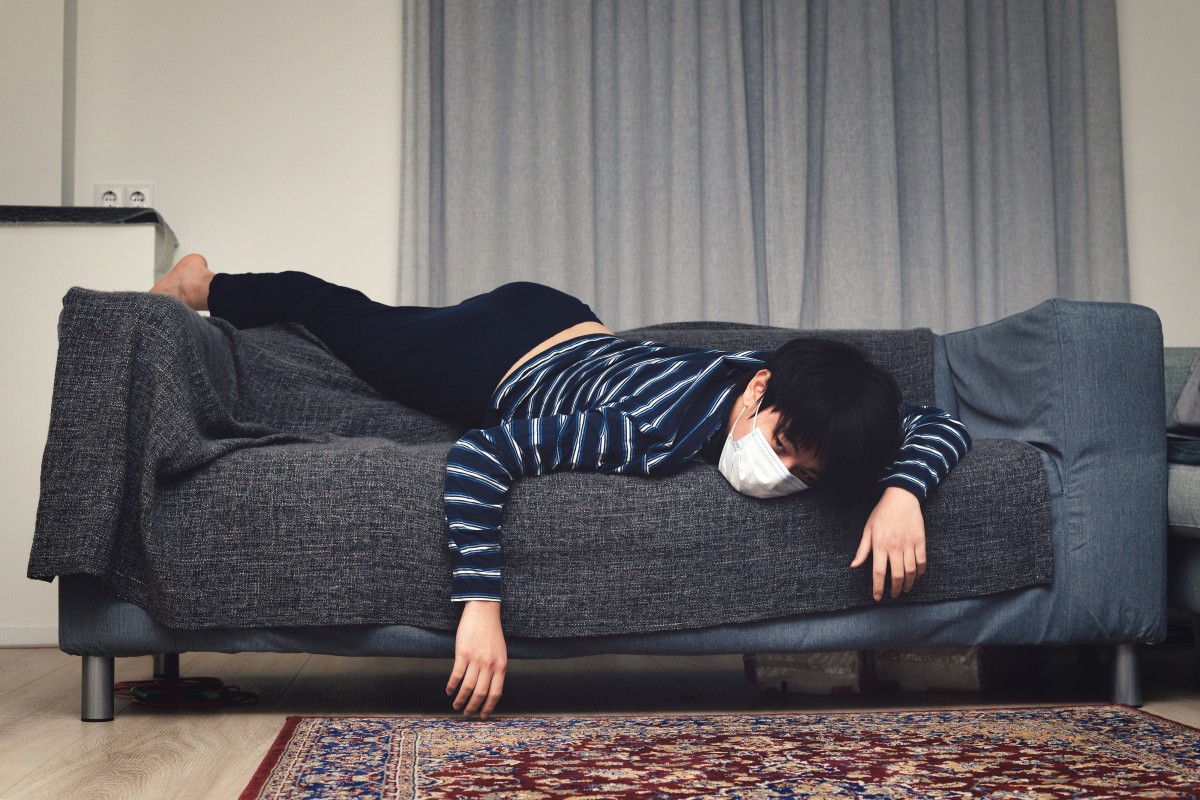
- Hospitalisation rate at 100-120 daily, XBB variant accounts for majority of the cases
- Covid-19 jabs administered in Hong Kong did not specifically target the XBB strain
 Declining antibodies may lead to rising Covid-19 cases in Hong Kong. Photo: Shutterstock
Declining antibodies may lead to rising Covid-19 cases in Hong Kong. Photo: ShutterstockCoronavirus cases in Hong Kong are likely to peak in the course of the next few months, according to a government pandemic adviser, as antibodies produced by vaccines that protected people against Covid-19 have declined, and the daily hospitalisation rate is 120 cases.
David Hui Shu-cheong, professor of respiratory medicine at Chinese University, said that the positive rate of nucleic acid testing was 15 per cent based on Hospital Authority data, adding that there was a high chance of another peak in cases between this month and December, possibly overlapping with a flu outbreak.
“There are about 100 to 120 cases requiring hospitalisation on a daily basis, with the XBB variant accounting for 98 per cent,” Hui told a television programme.
“Given that the previous peak occurred between April and May this year and antibodies [from vaccines] tend to decline after about six months, another one is estimated to occur between this month and the end of the year,” he said.
He added that Covid-19 jabs administered in the city did not specifically target the XBB strain, while the third-generation vaccines produced by Pfizer and Moderna approved by the Federal Drug Administration in the United States last month used the sub-lineage XBB.1.5 as their primary antigen.
“After vaccination, there will be high antibody levels against the XBB lineage, as well as coverage against the EG.5.1 and BA.2.86 variants currently circulating overseas,” said Hui, who is also a member of the Centre for Health Protection’s Scientific Committee on Vaccine Preventable Diseases.
Nobel Prize goes to mRNA Covid vaccine researchers
It will convene a meeting on Wednesday to discuss buying the next generation of vaccines.
“I believe we will consider the information provided by pharmaceutical companies and decide which vaccine to buy based on the most critical factor, which is having sufficiently high antibody levels,” Hui said.
He said he believed authorities would continue to provide subsidies for vaccination to high-risk groups, such as elderly residents.
A third-generation XBB shot could serve as a booster jab, Hui added, saying the first and second-generation vaccines still provided strong protection, which could prevent severe illness and reduce the risk of death, but were less effective in preventing infection.
Professor Ivan Hung Fan-ngai, an infectious diseases specialist at the University of Hong Kong, said the Covid-19 pandemic had disrupted the seasonal flu cycle, and he urged high-risk groups to get inoculated against the latter as soon as possible.